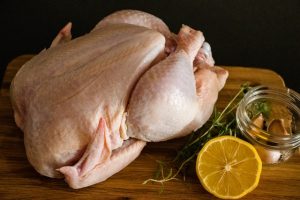There are many spices out there in the market that are great for adding to food for flavor. But did you know that you can actually make money off of these spices? Some spices, like cinnamon and vanilla, are used in perfumes and home décor products. Other spices can be used in medicinal ways and in traditional recipes.
Tamarind is actually used as a medicine and it has a very sour taste, but it is also harvested for its nutritional value. Black pepper is another spice that has many uses. Not only is it great on food, but it’s also used as an antiseptic and analgesic.
Are you going to start a spice business soon? These are 11 practical tips to help you start your own spice business:
Go online. There are numerous online resources that will give you advice on how to get started with a spice business. Find a reliable supplier. You will need to find a company that sells ingredients wholesale who can sell their products directly from their warehouse or from their office. Be willing to work long hours. It might take time before you will see the fruits of your labor or before your business becomes profitable. Make sure you have great customer service skills. This is especially important when dealing with customers over the phone and via email,
Are you going to start a spice business soon? If so, these are 11 practical tips to help you start your own spice business.
Are you a lover of herbs and spices? Are you interested in starting your own spice business? Then this article might interest you. Spice is very important for most people’s cooking needs. Many people would like to start their own spice businesses. But the question is how do they go about starting their own spice business? So if you are one of those many people who have this question in mind, then you have come to the right place.
TIP 1: Find out if there is a market for spices where you live.
There has always been a constant demand for different kinds of spices and herbs by both the natives and the tourists who visit that area. Before venturing into this kind of business, it is advisable that you find out if there are many tourists visiting or living in your area, as it may determine whether or not there is enough need for the spice that you will be selling in your shop. After finding out that there is indeed an adequate number of people interested in buying your spices, then it is time to move on to the next step.
TIP 2: Know your prices before beginning with anything else.
Try to find a supplier, who will give you high quality bulk zaatar spice at the best wholesale price.
This is the first step in starting your own spice business.
Find a supplier with high quality zaatar spice and great pricing.
The supplier you have chosen should always have good and fresh stock of zaatar spice.
Ask him if he can provide samples of his quality zaatar spice before you commit to buy any large quantity of it.
You should also make sure that he has a good reputation for providing high-quality and fresh products.
Your supplier should be able to provide you with his product at the best prices in the market!
The exporter or manufacturer who provides you with the right product, at the right time, at the right cost, will be able to increase his own sales volume as well as your business success rate. So try to work with an exporter or manufacturer who has experience working with other businesses like yours!
The second step: Find out where people buy their spices from and why they prefer this brand over others; discover what spices are already sold in your area, find out how much they are selling them for and how much profit they are making off them; finally, find out what kind of
Just like any other business, you need to take the time to plan your start up, so you don’t waste money or time. As with most businesses, a successful spice business will involve a few key elements: proper planning, research, and an understanding of your competition. This article will provide you with some helpful advice.
7 Steps to Starting Your Own Spice Business
Planning your spice business is essential. It doesn’t matter if you’re just starting out or expanding an existing business, without a plan it’s easy to lose your way or fall behind schedule. Here are seven steps you should take before launching your own spice business plan:
* Determine what type of spices you want to sell. There are many types of spices on the market, from familiar favorites like cinnamon and garlic powder to foreign flavors like garam masala and five-spice powder. While there are no limits to how many types of spices you can sell, it’s important that you understand what each spice is used for and how much demand there is for the product in order to avoid oversupplying the market or not having enough stock on hand when demand increases.
{| class=”wikitable” style=”text-align:center; width:75%; font-size:90
Each region has its own traditional spice blends, but there are a few that are found throughout the country. Zaatar is one of those. Zaatar is a mixture of herbs and sesame seeds that is as popular among Lebanese people as oregano is in the United States.
Zaatar can be used in cooking or as a dip for pita bread or raw vegetables. It can also be added to salad dressings for a delicious twist. Whatever you use it for, this fragrant spice blend makes foods taste fresh, rich, and vibrant.
TIP 1: Buy your zaatar from a reliable source
You will want to make sure that you purchase your zaatar from an experienced seller who knows what they are doing. Since you will need to work with many different spices, you will want to make sure that they are handled carefully to avoid contamination of any kind.
Zaatar is not only popular in Lebanon, but also in Syria and Jordan. So be sure to ask if the zaatar you purchase comes from those areas specifically. You might want to try to find out where exactly your zaatar was made or grown if it does not specify on the label. If you do not have time for this then it is fine;
Do you know what zaatar spice is? If not, it is time to find out. This spice has been used for centuries in different cultures and people have discovered that it has an amazing effect on the body. It is not only used for cooking. It can also be used as a medicine.
Taste and smell are one of the strongest senses for humans and this is why we love food so much. The right food gives us pleasure, makes us feel relaxed and often improves our mood. We are always looking for something new, something spicy, to feed our need of excitement.
Taste is one of the most important senses in humans. A lot of people will remember a certain taste and will think about this taste every single day. You can create your own spice mix that will make you feel good every time you smell or taste it. This is why it is so beneficial to cook with natural ingredients like zaatar spice.
Zaatar (Arabic: زعتر) or Zatar (زاتر) is a generic name for a family of related Middle Eastern herbs from the genera Origanum, Calamintha, Thymus and Satureja.[1] These plants are cultivated in gardens
zaatar Spice (also spelled za’atar, zahtar, za’ẓār, and other variants) is a family of related Middle Eastern herbs native to the Mediterranean region.
It is popular in Middle Eastern cuisine and its various regional varieties are used in different cuisines around the world. In Arabic, the word زعتر (zaʻtar) means “thyme”, as both are considered to be “bitter herbs.”
Za’atar can refer to the herb marjoram (Origanum syriacum), dried or fresh. Or it can refer to a blend of any or all of the following herbs: oregano, thyme, marjoram and savory. The Arabic name refers to the thyme content.
This spice mixture is often associated with Lebanon and Syria. However, it is also found in North African cookery and Turkish cuisine.
There are many varieties of za’atar; what follows are some common recipes for producing these mixtures. Some may contain sumac instead of azafran, or additional ingredients such as sesame seeds or ground pistachios.
Many commercial varieties of “za’atar” are not made from a


